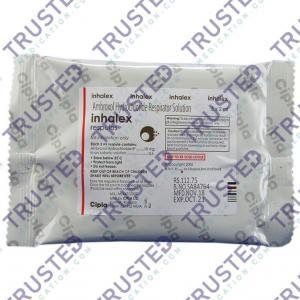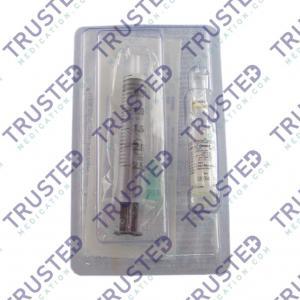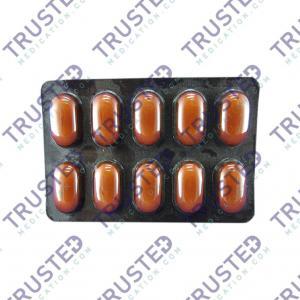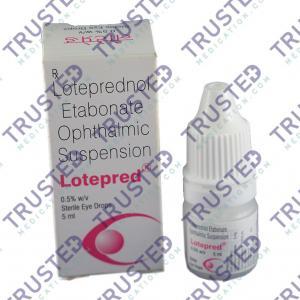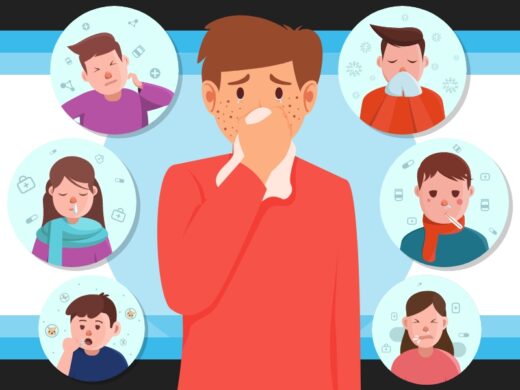
Allergy is defined as an inappropriate immune response to an otherwise harmless substance in the environment. Our immune cells are always on the lookout for dangers, such as viruses, bacteria, toxic substances, and parasites. When these molecules enter the body, the immune system can react by labeling them as either harmless or dangerous.
Common allergies occur when your body reacts to something normally harmless like pollen, dust, or animal fur. The symptoms can be mild, but for some people, they can be severe. You could be having a serious allergic reaction (anaphylaxis) and may need immediate treatment in the hospital.
How Do People Develop Allergies?
The immune system reacts to allergic substances that enter the body as though they are unwelcome invaders, resulting in allergy symptoms. Immune cells will produce antibodies that recognize the same allergic substance later on if it enters the body.
When allergens reenter the body, the immune system quickly recognizes them, causing a series of reactions. These reactions often involve tissue destruction, blood vessel dilation, and the production of many inflammatory substances including histamine. Histamine produces common allergy symptoms.
What Are the Symptoms That Someone Is Getting an Allergic Reaction?

Symptoms of a mild allergic reaction can include:
- Rash
- Itching
- Scratchy throat
- Watery or itchy eyes
- Hives, or itchy red spots on the skin
- Allergic rhinitis, which may lead to symptoms such as nasal congestion or sneezing
Severe allergic reactions can cause the following symptoms:
- Diarrhea
- Nausea or vomiting
- Abdominal cramping or pain
- Pain or tightness in the chest
- Difficulty swallowing
- Fear or anxiety
- Difficulty breathing
- Wheezing
- Heart palpitations
- Flushing of the face
- Dizziness or vertigo
- Unconsciousness
- Swelling of the face, eyes, or tongue
- Weakness
Common Food Allergies
Here are the common food allergies:
- Cow’s Milk
- Eggs
- Tree Nuts
- Peanuts
- Shellfish
- Wheat
- Soy
- Fish
Some less common food allergies include:
- Avocado
- Kiwi fruit
- Celery
- Passion fruit
- Peach
- Banana
- Linseed
- Sesame seed
- Aniseed
- Chamomile
- Garlic
- Mustard seeds
Do These First Aid for Allergic Reactions
Anaphylaxis (a life-threatening allergic reaction) causes shock, a sudden drop in blood pressure, and trouble breathing. Anaphylaxis can occur minutes after exposure to allergy-causing substances in people with allergies. There may be a delayed reaction, or anaphylactic shock may occur with no obvious cause.
If you’re with someone having an allergic reaction with signs of anaphylaxis:
- Call 911 right away or your local medical emergency hotline.
- Ask if the person is carrying an epinephrine auto-injector to treat an allergic attack.
- If the person needs to use an auto-injector, ask whether you should help inject the medication. This is usually done by pressing it against the person’s thigh.
- If there’s vomiting or bleeding from the mouth, turn the person to the side to prevent choking.
- Loosen tight clothing and cover the person with a blanket. Don’t give the person anything to drink.
- Have the person lie face up and be still.
- If there are no signs of breathing, coughing, or movement, begin CPR. Do uninterrupted chest presses, about 100 every minute until paramedics arrive.
- Get emergency treatment even if symptoms start to improve. After anaphylaxis, symptoms can start again. Monitoring in a hospital for several hours is usually needed.
If you’re with someone having symptoms of anaphylaxis, don’t wait to see whether the symptoms get better. Seek emergency treatment right away. In severe cases, untreated anaphylaxis can lead to death within half an hour.
An antihistamine pill, such as Cyproheptadine HCL can help relieve allergy symptoms. The drug works by blocking the action of histamine. It blocks natural substances like serotonin and histamine that the body makes during allergic reactions. The active ingredient is an antagonist. It competes with serotonin and histamine respectively for receptor sites.



